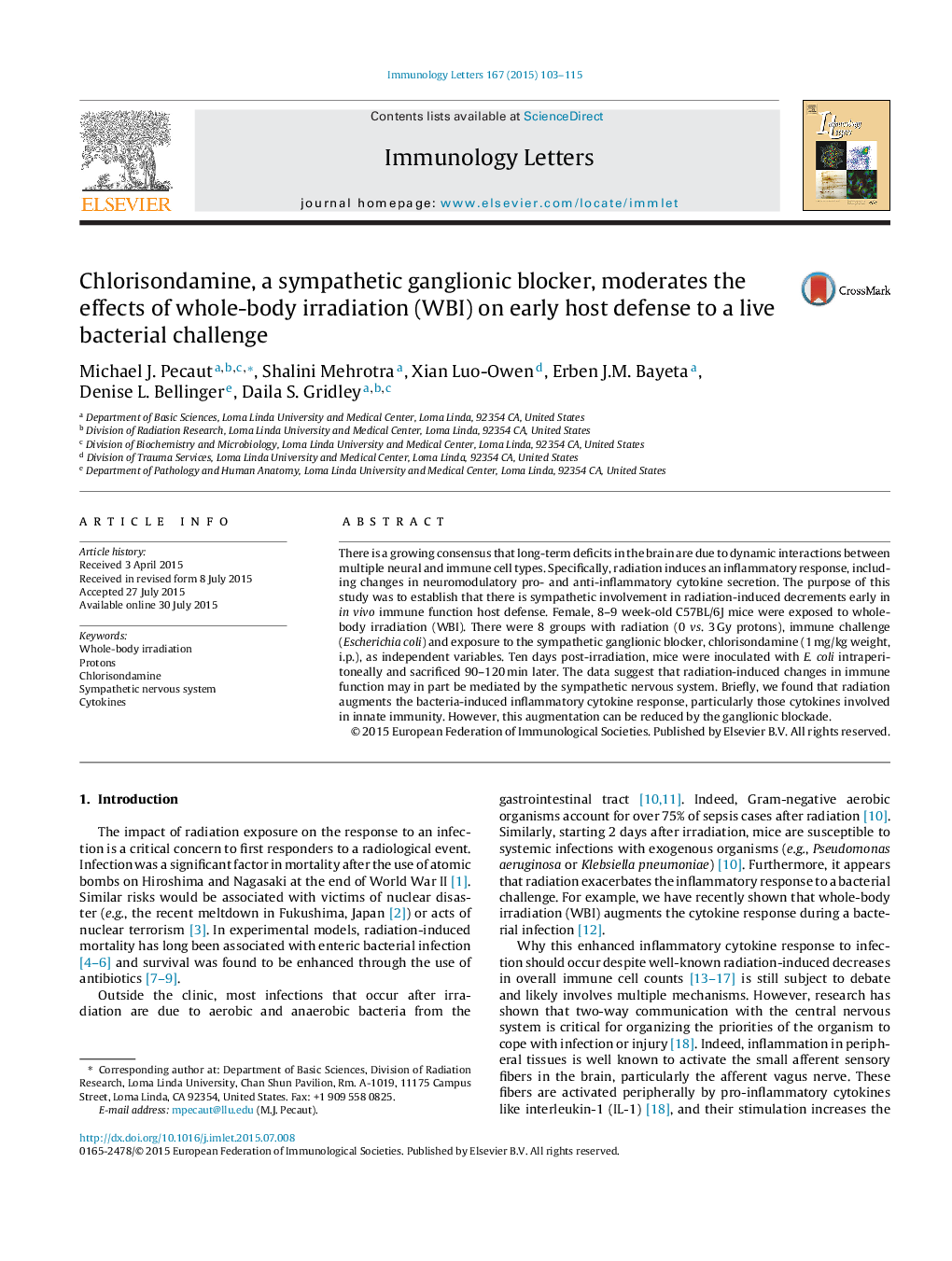| Article ID | Journal | Published Year | Pages | File Type |
|---|---|---|---|---|
| 6117110 | Immunology Letters | 2015 | 13 Pages |
Abstract
There is a growing consensus that long-term deficits in the brain are due to dynamic interactions between multiple neural and immune cell types. Specifically, radiation induces an inflammatory response, including changes in neuromodulatory pro- and anti-inflammatory cytokine secretion. The purpose of this study was to establish that there is sympathetic involvement in radiation-induced decrements early in in vivo immune function host defense. Female, 8-9 week-old C57BL/6J mice were exposed to whole-body irradiation (WBI). There were 8 groups with radiation (0 vs. 3Â Gy protons), immune challenge (Escherichia coli) and exposure to the sympathetic ganglionic blocker, chlorisondamine (1Â mg/kg weight, i.p.), as independent variables. Ten days post-irradiation, mice were inoculated with E. coli intraperitoneally and sacrificed 90-120Â min later. The data suggest that radiation-induced changes in immune function may in part be mediated by the sympathetic nervous system. Briefly, we found that radiation augments the bacteria-induced inflammatory cytokine response, particularly those cytokines involved in innate immunity. However, this augmentation can be reduced by the ganglionic blockade.
Related Topics
Life Sciences
Immunology and Microbiology
Immunology
Authors
Michael J. Pecaut, Shalini Mehrotra, Xian Luo-Owen, Erben J.M. Bayeta, Denise L. Bellinger, Daila S. Gridley,
